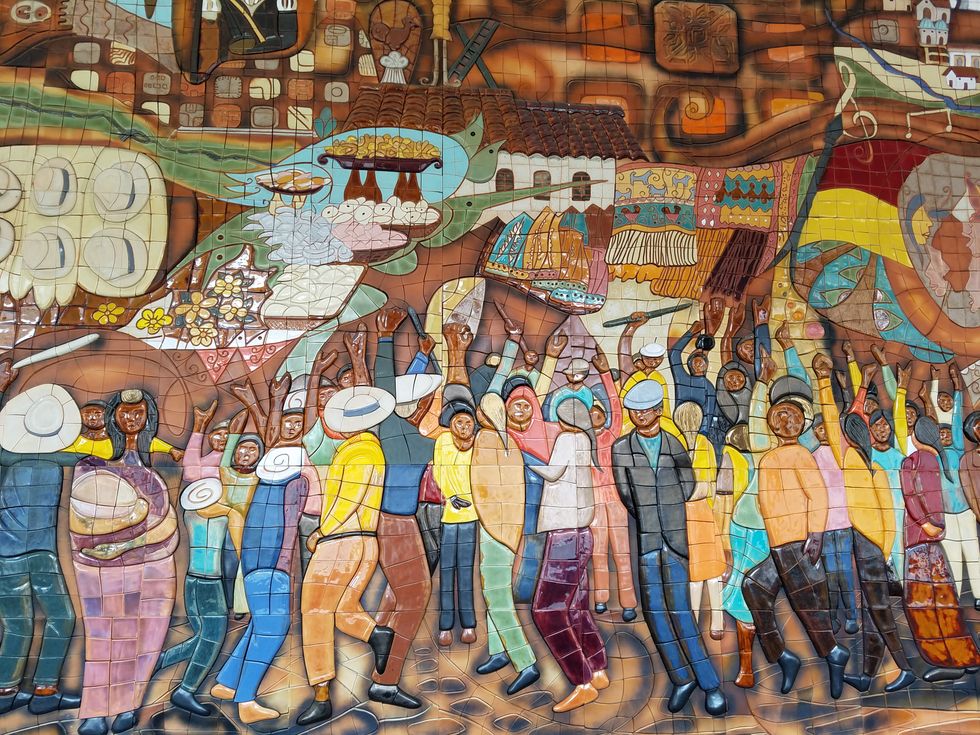Culture is all of the things that we understand about a group of people. The knowledge, values, tangible objects (such as the cross), beliefs, behavior, norms, probably among other things. When you think about traveling abroad you may have an idea of what you think you know about a country, or what the people are like. Traveling can open your mind to these things but can also be quite a shock to you because of the differences.
Culture shock is used to describe the “psychological disorientation” experienced when you leave your familiar surroundings. There are a number of emotions that can be experienced while going through the cultural adjustment curve.
The Adjustment curve is just what is sounds like, a bell curve of emotional stages associated with travel abroad. There are 5 steps to the adjustment curve.
Step 1: Everything is new, exciting and different.
When you arrive to a new country you are going to be excited. Everything is going to be exciting to you. You’re going to love just being there in that new environment. You’re going to want to do everything and experience all there is to see.
Step 2: Frustration / Annoyance
This is where all of those exciting new differences become annoying to you. You begin to feel nostalgic of your favorite things back home. Sometimes the food is completely different and you can’t find your favorite grocery store staples anymore. What about the language barrier? If you’re having a bad day, these differences seem like the end of the world.
Step 3: Surface Adjustment:
This is the first period of adjustment and getting used to these differences. This is a temporary up-swing of positive emotions. You are starting to take into consideration why the differences are okay and only temporary.
Step 4: Confronting deeper issues
This is the last downswing in emotions. You start to take things a little more personally and get very homesick at times. You start to think that some of the problems begin to be your own problem instead, something more deep and personal.
Step 5: Adaptation and Assimilation
Here is your final stage of emotion. This one is an upswing in your emotions. You’ve finally began to accept the differences between the 2 cultures and started to understand them. You can justify why they do something the way that they do. You have the understanding that these things are only temporary and you will someday miss them.
A person can fluctuate between these feelings at any point in time. Everyone experiences these feelings at a different pace. You may not feel homesick until months into your travel. It’s hard to say. It’s important to know that all feelings during this time are normal. You may feel upset, homesick or scared and that is normal for everyone. Keep in mind that thousands of people have experienced this before you, and many will after you. Don’t block the feelings, but instead embrace them and get to the bottom of it.
Keeping an open mind is the best thing you can do while abroad. If you look at the changes without judging them, you’ll have a much more successful time. Your experience abroad is a correlation of what you put into it. If you let the feelings of anger or anxiety get to you time after time you won’t enjoy it as much. You need to understand your feelings and continue on with your time. You may only have a short time away, so you need to make the most of your time.
A sense of humor can be your best friend while you’re abroad. If you make a mistake in the language or forget that you need to take your shoes off at the door, etc., you can just laugh it off. The people will want to laugh with you.
If you are experiencing a bad day, you need to do what you can in order to feel comfortable. Look at pictures from home, read a book, or watch a movie, whatever your go-to is to calm down and relax. Your time abroad can be the most exciting time of your life if you make it that way. Take time to stop and smell the roses.




























